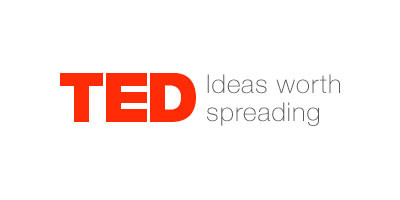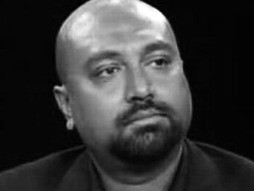
Public Diplomacy Highlighted in TED Talks
Recent years have seen a growing attraction to the informational format of TED talks, 1500 of which are freely accessible on the TED website. TED’s (Technology, Entertainment and Design) global accessibility via the World Wide Web in 40 languages provides viewers with examples of several innovative public diplomacy endeavors. Among the presenters are comedians, journalists, musicians and more.
 In particular is a presentation by Maz Jobrani, an “actor and comedian who starred on the Axis of Evil Middle East Comedy Tour, a groundbreaking tour out of the US and Middle Eastern countries, where it sold out 27 shows in Dubai, Beirut, Cairo, Kuwait and Amman.” Jobrani’s comedy focuses on misconceptions between America and the Middle East.
In particular is a presentation by Maz Jobrani, an “actor and comedian who starred on the Axis of Evil Middle East Comedy Tour, a groundbreaking tour out of the US and Middle Eastern countries, where it sold out 27 shows in Dubai, Beirut, Cairo, Kuwait and Amman.” Jobrani’s comedy focuses on misconceptions between America and the Middle East.
Jobrani’s comedic talk, “A Saudi, an Indian and an Iranian walk into a Qatari bar…” provides a humorous side of the Middle Eastern people through jokes about how a Muslim can conduct him or herself so that they do not get into trouble. This talk was presented in Doha, Qatar to a diverse group of ethnicities. During his presentation, the camera pans the audience showing the diversity of the demographics, who is noticeably laughing at every punch line on topics that are sensitive in nature and could potentially create hostile situations given a different setting. This particular TED talk has been viewed over a million times since 2010, presenting some measures of evidence that his comedy has a strong appeal and serves as a great example of cultural diplomacy.
 On a more serious note, Bobby Ghosh, a veteran journalist out of Iraq who is now Time’s World Editor, gives a talk on Osama bin Laden and his use of the word Jihad. Ghosh explains that the meaning of Jihad for most Muslims means an internal struggle to live by the moral code of the Quran. As explained by Ghosh, there is a small minority who believe that the meaning of Jihad also includes external forces which threaten the Muslim faith, and feels it is ok to exercise violence against this external force. For Osama bin Laden, Jihad meant global terror targeted at, “the crusaders in the West”: especially America, resulting in the 9/11 attacks.
On a more serious note, Bobby Ghosh, a veteran journalist out of Iraq who is now Time’s World Editor, gives a talk on Osama bin Laden and his use of the word Jihad. Ghosh explains that the meaning of Jihad for most Muslims means an internal struggle to live by the moral code of the Quran. As explained by Ghosh, there is a small minority who believe that the meaning of Jihad also includes external forces which threaten the Muslim faith, and feels it is ok to exercise violence against this external force. For Osama bin Laden, Jihad meant global terror targeted at, “the crusaders in the West”: especially America, resulting in the 9/11 attacks.
Ghosh’s focus during this talk is that the idea of Jihad that bin Laden developed started as very localized conflicts and then expanded internationally/globally. Ghosh wants to inform people that these conflicts still exist and should be managed so that they don’t manifest into “Global Jihads,” which result in events like 9/11. Ghosh explains that these local conflicts occur around the world in places like Mali, Iraq and Nigeria. Ghosh says that one of the ways to manage these local conflicts is by utilizing what is known in public diplomacy as broadcasting and creating a narrative.
The narrative that bin Laden established of Jihad is referred to by Ghosh as bin Ladenism, and one of the counters this was broadcasting. Arab news stations like Al Jazeera, provided information to the population about how bin Laden utilized their religion. In turn, this allowed them to make their own conclusions. Ghosh contended that the rising of the Arab Spring showed how the younger generation of Muslims could bring about positive change in their community in ways that bin Laden could not. Ghosh acknowledges that many factors, including American soldiers, all play a role in the dismantling of bin Ladenism. Ghosh ends his talk by stating that he is very optimistic that the gap between the Muslim world and the West is narrowing and that the original meaning of the word Jihad will be reclaimed.
These two TED talks are example of how diplomacy can take a sensitive topic and neutralize it. Jobrani’s cultural appeal through comedy gives him an opportunity to showcase a positive side of the Middle East to international audiences. Ghosh’s straight forward and direct talk speaks to how a religious conception has changed and how the narrative can be reclaimed in order to help a group of people reclaim their religion and livelihood. TED talks discussing examples of public diplomacy should be given more attention in the media as one of the ways to avoid misperceptions of groups and nationalities so that relationships can be built and maintained.





